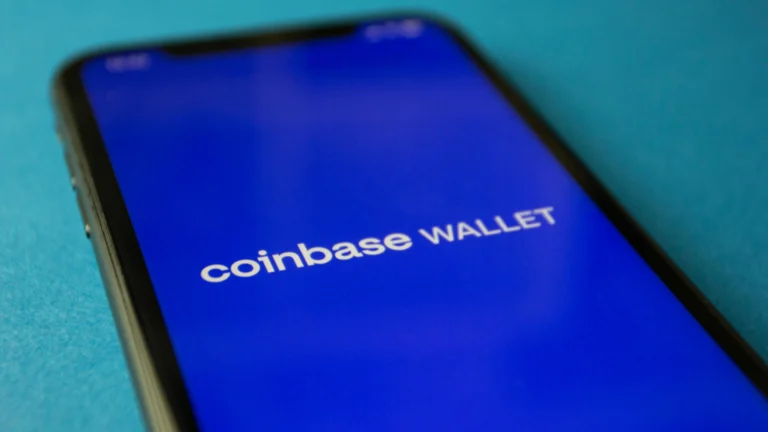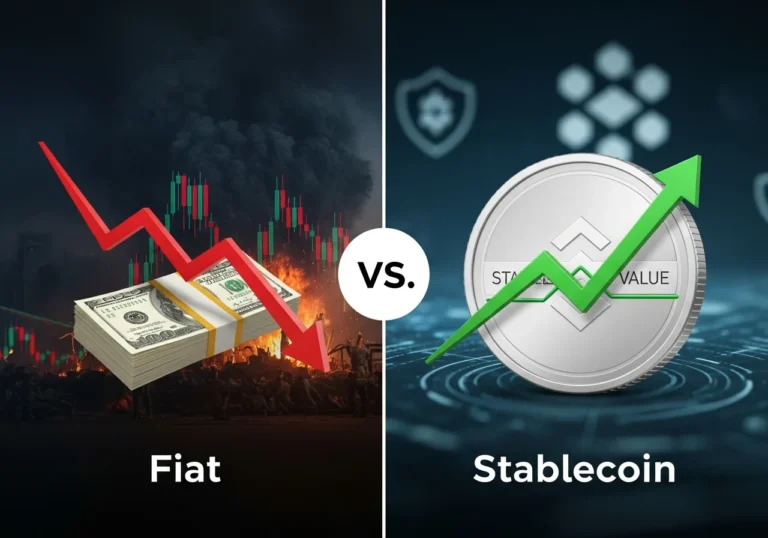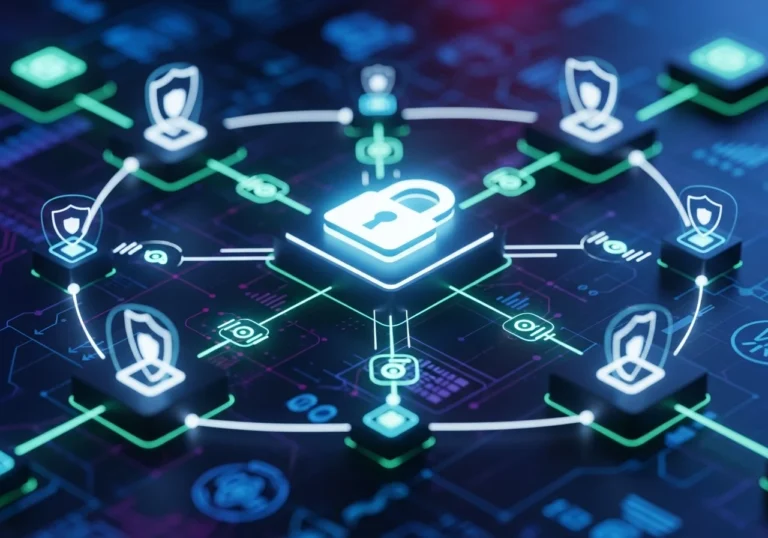Decentralization & Crypto Privacy: A Complex Relationship
Enter decentralization. Sounds grand, but the idea’s straightforward. Imagine instead of one giant company holding everyone’s info and calling the shots, control gets spread out. Like a neighbourhood watch group instead of one overworked security guard. Lots of regular folks pitching in, sharing the load. Sounds perfect for privacy, yeah? Less big brother, more your control.
Well, bless your heart, it’s not that simple. The truth is, decentralization and keeping things private in the world of crypto? They’ve got a complicated relationship. It’s messy. Let’s untangle it together, nice and easy.

What “Decentralized” Really Means (Think Baseball Cards!)
Picture your prized baseball card collection. The old way (centralized) is like keeping them all locked in your friend Dave’s basement. Dave’s in charge. If Dave loses the key, or decides he likes your rookie card too much… tough luck! Decentralization is different. It’s like you and your friends all keeping a list of who owns which card.
The actual cards might be with each owner, but everyone has the master list. If Dave loses his list? No sweat, Sarah and Jamal have copies. Decisions about trades? Maybe you all vote. No single Dave has all the power. That’s the heart of blockchain tech – the engine behind most crypto. Lots of computers hold copies of the record book. It’s harder to cheat, harder to break. Feels fairer.
The Dream: Digital Cash That’s Actually Private
Remember paying for candy with coins as a kid? Hand it over, done. No record. That’s the dream many had for crypto. Money that’s yours, moving from you to someone else, no nosy bank manager peeking. Simple. Private. Just like those coins.
The Surprise: That Public Ledger Isn’t So Shy
Here’s the rub. Lots of these decentralized systems? Especially the famous early ones? They’re built on a super public ledger. Imagine if every time you bought anything with cash, someone wrote down:
- “Wallet 7XQ9… paid $5 to Wallet B4F2… for coffee, 11:03 AM.”
- “Wallet B4F2… paid $20 to Wallet 8JK3… for movie tickets, 7:45 PM.”
And this list? Anyone, anywhere, anytime can see it. Forever. Those wallet addresses are like long, random nicknames, not your real name. But here’s the kicker: if someone figures out that “Wallet 7XQ9…” is yours (maybe you used it to buy pizza online once), suddenly they can see everything linked to it. Every coffee, every gift, every bill. Every. Single. Thing. Feels less like privacy, more like living in a fishbowl! Great for stopping cheats, awful for keeping your spending habits to yourself.
Table of Contents
Building the Curtains: Tools to Get Your Privacy Back
Seeing this, smart folks got busy. They started creating special tools for privacy, working with these decentralized networks. Think of it like adding curtains, blinds, and a good deadbolt to that fishbowl.
- Privacy-focused decentralized cryptocurrencies: These are digital coins born to be secretive. Like Monero or Zcash. They use clever maths (cryptographic privacy technology decentralized networks rely on) to hide who sent what, who got it, and how much. Like mailing cash in a plain brown envelope instead of a see-through baggie. Much sneakier!
- Secure communication protocols blockchain: It’s not just money! Blockchains can run chat apps too. These use secure communication protocols blockchain to scramble your messages and spread the pieces far and wide. Makes eavesdropping or shutting it down really hard. Like passing notes torn into pieces, stored in different lockers, only put together by the person meant to read it.
- Decentralized financial privacy solutions: This is a whole toolkit! Stuff like:
- Privacy-enhancing decentralized applications (dApps): Apps living on the blockchain. Imagine swapping crypto types without shouting your wallet history to the world. Or earning interest without everyone knowing your balance.
- Decentralized privacy-first cryptocurrency exchanges (DEXs): Unlike the big exchanges demanding your driver’s license, these let you trade straight from your own crypto wallet. Less tying your real name to your crypto life. Handy!
- (Older tricks like “mixers” exist, but honestly? They feel a bit dodgy and often land in hot water).
- Permissionless privacy-preserving blockchain platforms: This is important. It means anyone can use these privacy tools. No permission slips, no ID checks. Just hop on and cloak up. The network itself provides the hiding place.
- Anonymity-focused decentralized digital assets: Similar to the secret coins, these could be specific tokens designed to keep who owns them and where they go under wraps.
- Privacy-centric blockchain consensus mechanisms: Okay, this sounds fancy, but stick with me. The “consensus” is how the network agrees transactions are legit (like how miners or validators work). Some newer ways are trying to bake privacy right into these core rules. Privacy from the ground up, not just painted on.
- Decentralized identity protection solutions: This one’s a game-changer. Instead of logging in with Facebook (giving Mark Zuckerberg your life story!), imagine proving you’re over 21 or live in Texas without revealing your name or birthday. Decentralized identity protection solutions give you a digital wallet with little verified badges (“Over 21”, “Texas Resident”). Show the bouncer just the “Over 21” badge. Keep the rest private. Powerful stuff!
Why It’s Still Tricky: The Privacy Tightrope

So, with all these tools, problem solved? Not quite. Getting decentralization and real privacy to play nicely is still a balancing act.
- The Regulators Are Watching: Governments get twitchy. They worry (sometimes rightly) that strong privacy tools could help bad guys hide illegal stuff. So they push for backdoors or ways to peek in. Creates a real tension. Balancing your right to privacy with stopping crime? It’s a tough nut to crack.
- The See-Saw Problem: Remember why decentralization is strong? Because everyone can see the rules working (transparency!). But privacy often means hiding stuff. How do you build a system everyone trusts without everyone seeing every detail? It’s a head-scratcher. Still being worked on.
- The “This Feels Like Rocket Science” Issue: Let’s be honest. Some of this cryptographic privacy technology decentralized networks use? It’s complex. Setting up and using the best privacy tools securely isn’t always straightforward. If it’s too fiddly, people just won’t use it. And privacy only works if people use it! Needs to be simpler.
- The “Nothing to Hide” Myth: Heard this one? “If you’re honest, why care?” Misses the point. Privacy isn’t about hiding crimes; it’s about basic control. Not wanting every coffee purchase tracked, sold, and used to target you. Avoiding hassle based on where you shop or send money. Decentralized identity protection solutions are all about giving you that control back.
- The “I Thought I Was Invisible” Mistake: Sometimes folks using regular crypto (like Bitcoin) think that wallet address makes them anonymous. But as we saw, if that address gets linked to you? Your whole financial history lights up like a Christmas tree. True privacy needs active steps and the right tools.
So, What’s Next? Can We Get There?
Don’t lose hope! Things are moving. The goal isn’t total invisibility (probably impossible and maybe not even good), but giving you real, practical control over your info.
- Tools Getting Easier: Developers are sweating to make privacy-enhancing decentralized applications simpler. Think privacy settings as easy as your phone’s ‘Do Not Disturb’. Much better!
- Privacy by Default: Newer permissionless privacy-preserving blockchain platforms are being built with privacy baked right into their core DNA (privacy-centric blockchain consensus mechanisms). Harder to remove.
- Smarter Rules, Maybe? Hopefully, laws will catch up, focusing on catching bad apples without stomping on the privacy of regular folks using decentralized financial privacy solutions.
- Your Identity, Your Rules: Those decentralized identity protection solutions? Could change how we handle personal info everywhere online.
- Knowledge is Power: Understanding this stuff – the gap in decentralization, the tools available (anonymity-focused decentralized digital assets, secure communication protocols blockchain) – is your best shield.
Wrapping It Up: Your Privacy, Your Effort
Decentralization offers something powerful: resilience, less reliance on the Daves of the world, and more personal say. But it doesn’t hand you privacy on a silver platter. That part? That’s on you.
Think of decentralization like getting your own plot in the community garden. Privacy is the tall sunflowers you plant for shade, the fence you put up, the lock on your tool shed. You’ve got to choose and build those things yourself.
Yeah, it’s complicated. There are bumps and trade-offs. But the core idea – controlling your own digital life – matters. Knowing about the tools – the privacy-focused decentralized cryptocurrencies, the secure communication protocols blockchain, the privacy-enhancing decentralized applications – lets you make choices about how private you want to be.
It’s about creating a world where the system is open and works, but you decide how much of your life is on display. Finding that balance? That’s the real prize. And it’s worth chasing.
Quick Cheat Sheet: Decentralization & Privacy
- Decentralization = Shared Power: Like a neighbourhood watch, not one security guard. Many participants, shared responsibility.
- Privacy Isn’t Automatic: Using crypto doesn’t make you invisible. Many systems are surprisingly public.
- The Ledger Shows (Almost) All: Public blockchains are great for trust but expose your transactions like an open diary.
- You Need Privacy Tools: Special coins (Privacy-focused decentralized cryptocurrencies) and tech (cryptographic privacy technology decentralized networks) are essential for hiding details.
- Beyond Cash: Secure communication protocols blockchain power private chats. Decentralized identity protection solutions let you share proofs (like age) without your whole ID.
- Hurdles: Governments are wary, mixing openness and secrecy is tricky, and some tools feel complex.
- Progress: Easier privacy-enhancing decentralized applications and networks with built-in privacy (Permissionless privacy-preserving blockchain platforms, Privacy-centric blockchain consensus mechanisms) are coming.
- Stay Informed: Knowing the tools helps you use Decentralized financial privacy solutions and Anonymity-focused decentralized digital assets well.
- Exchange Choice: Decentralized privacy-first cryptocurrency exchanges offer more anonymity than big exchanges needing your ID.
- Control Matters: It’s about having the choice and the means to protect your own info online.

Hello, I’m Edmilson Dias, founder of CoinBringer. I created this platform to guide people through the fast-moving world of cryptocurrency with clarity and safety. With years of research in blockchain and digital security, my goal is to translate complex topics into practical knowledge, offering reliable tutorials, safety insights, and guidance for both newcomers and experienced users.
Discover more from CoinBringer
Subscribe to get the latest posts sent to your email.







